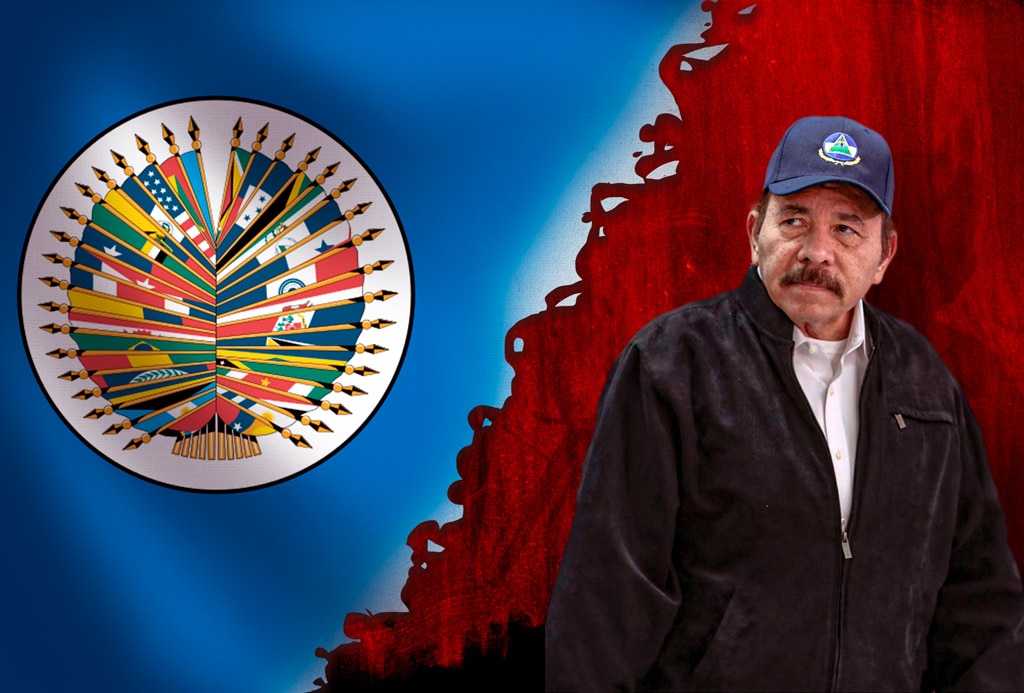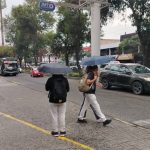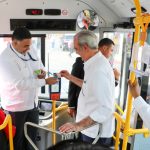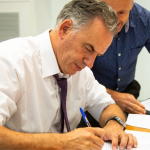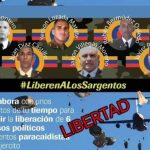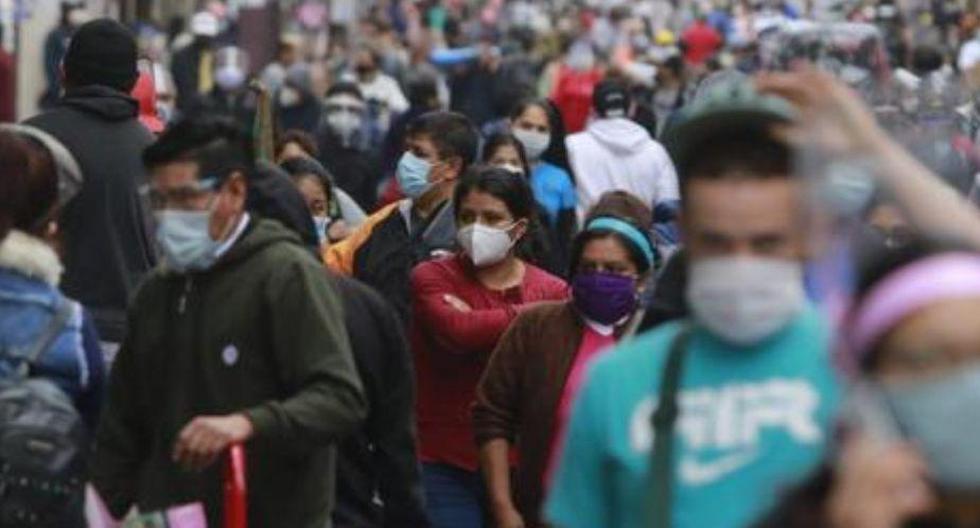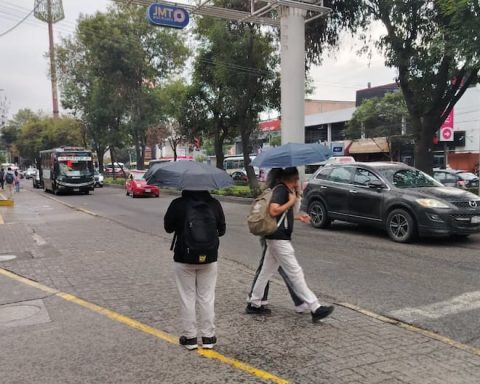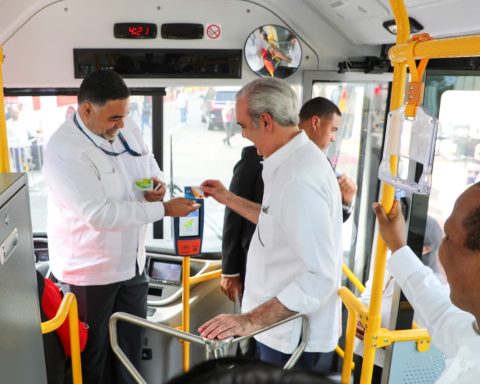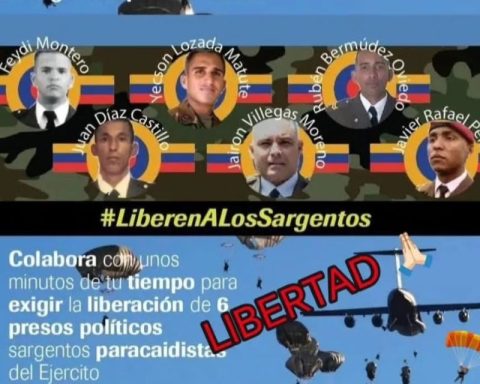The resolution of the Permanent Council of the Organization of American States (OAS), which He asked this Wednesday with 25 votes for the release of all political prisoners and comprehensive reforms for the holding of new presidential and parliamentary elections in Nicaragua, place the Daniel Ortega regime in a difficult situation for any state, warned political scientist Alberto Cortés Ramos, professor at the School of Political Science at the University of Costa Rica.
Cortés compared the political situation of Ortega and Rosario Murillo with that of Anastasio Somoza Debayle, whose dictatorship was condemned in June 1979 by the regional organization that requested his immediate replacement, which happened a month before the Sandinista revolution triumphed. He was the last member of the dynasty who directed the destiny of the country since 1937.
“As much as (the Nicaraguan Government does not seem to give importance to the resolution), it is a great majority of countries on the continent that are pointing out this violation of the Inter-American Charter and, in addition to that, there was practically only one country that was in against this resolution (Nicaragua), in other words, the other eight countries that abstained do not show an endorsement of the position and Nicaragua’s authoritarian drift, “said Cortés in an interview on the television program Tonight.
The draft resolution approved orb had the vote of 25 countries, eight abstained (among them Mexico, Argentina, Bolivia and Honduras) and only Nicaragua voted against the declaration that demands that the regime agree to meet with a high-level OAS delegation to reach a agreement regarding the breaches of the Central American country with the commitments assumed in the Inter-American Democratic Charter.
The document demands the re-entry into the country of the international human rights organizations that documented the state repression in 2018, which left 355 murdered and 2,000 injured, according to the Inter-American Commission on Human Rights (IACHR). But, in addition, he proposes that Ortega meet with the Secretary General of the OAS, Luis Almagro, who will inform him of the decision made by the organization.
Almagro must report to the OAS Permanent Council on the results of the negotiations with the Government of Nicaragua no later than Friday, December 17. Regarding the votes of each of the delegations in this Wednesday’s session, Cortés highlighted the position of Bolivia, which, although it abstained, asked the Ortega Executive to accept the OAS visit. For the expert, reading the abstentions as an endorsement would be a mistake.
Instead, the Costa Rican expert said that the vote of Argentina– again abstaining – is rather due to internal situations in that South American country in relation to the positions of Vice President Cristina Fernández, who has a more critical position with Almagro.
With the international panorama critical to his management, Ortega’s next steps will seek to focus internally.
Ortega will try to gain room for maneuver
“The illegitimate government of Ortega and Murillo is going to enter a route of (pretending) that they are calling for internal dialogues, trying to gain room for maneuver, presenting itself as a government that is trying to stabilize and reconcile the country before proceeding to accept any type of incident, involving the OAS in internal affairs. I do not see this feasible (meeting with the mission of good offices of the inter-American organization) in the short term, “added the political scientist.
Cortés was “skeptical” about the result of the efforts of the high-level mission, because historically what Ortega and Murillo have done is “react to correlations of force and at this moment, beyond the consensus of the international community that they violate human rights, there has not been a correlation of forces, nor enough pressure for them to change (their position).
So far, the Ortega regime has accused the international community of intervening in its internal affairs, while challenging the United States and strengthening its alliance with the President of the Russian Federation, Vladimir Putin.
Nicaragua’s opposition reacts
Alexa Zamora, member of the Political Council of the Blue and White National Unity (UNAB), values the resolution as “positive”, above all, because they have insisted on greater participation of the international community in a process that will result in a peaceful solution to the crisis of the country.
Zamora assured that the leader’s reaction to the location of the OAS is unknown, but recalled that the first prerequisite is the release of political prisoners. The dictatorship has more than 160 political prisoners, including more than 40 since last May, when Ortega closed the electoral route by imprisoning his main political rivals.
Berta Valle, wife of the presidential candidate Félix Maradiaga detained by the regime since last June, thanked all the countries that gave their support to Nicaragua, in its fight to regain its democracy and freedom. “For our part, we will continue working to build the free and sovereign republic that we so long for, away from the authoritarian regime,” he said.
A diplomatic source, who requested anonymity, also explained that “the resolution expresses the understanding of this situation and the deep repudiation that the international community is caused by what is happening in Nicaragua and seems to be willing to sustain and increase the pressure on Ortega to obtain some kind of negotiated solution to the Nicaraguan crisis “.
Ortega was left “without friends” at the OAS
However, former congressman and political analyst Eliseo Núñez affirmed that the Nicaraguan leader feels “emboldened” by his economic figures, which prevents him from being imagined in any effective dialogue.
“I don’t see him giving in. Basically because he believes that international isolation is temporary. He is waiting for Lula to win in Brazil, for the international panorama to be better repositioned and he is betting on locking up the country and sitting down and waiting a while longer, “added Núñez, who believes that the vote on the resolution shows that Ortega was left” without friends. ” at the OAS.
For Núñez, although Ortega tries to sell that there are no economic consequences for his political actions, in real life Nicaragua is a commercial partner of the United States, while that of Russia is a chimera, in his words.
Until press time, the only country that had spoken in favor of Ortega was Venezuela. His ally Nicolás Maduro, who retired from the OAS since 2019, denounced in a statement “The attacks against Nicaragua by the OAS and its Secretary General Luis Almagro.”
“We are facing an unprecedented and highly dangerous event in the history of international relations, in which the very foundations of the democratic system are put into discussion, and the principles of self-determination and independence of each country,” said Maduro, who has also been questioned by the international community for human rights violations and the deterioration of Venezuelan democracy.
